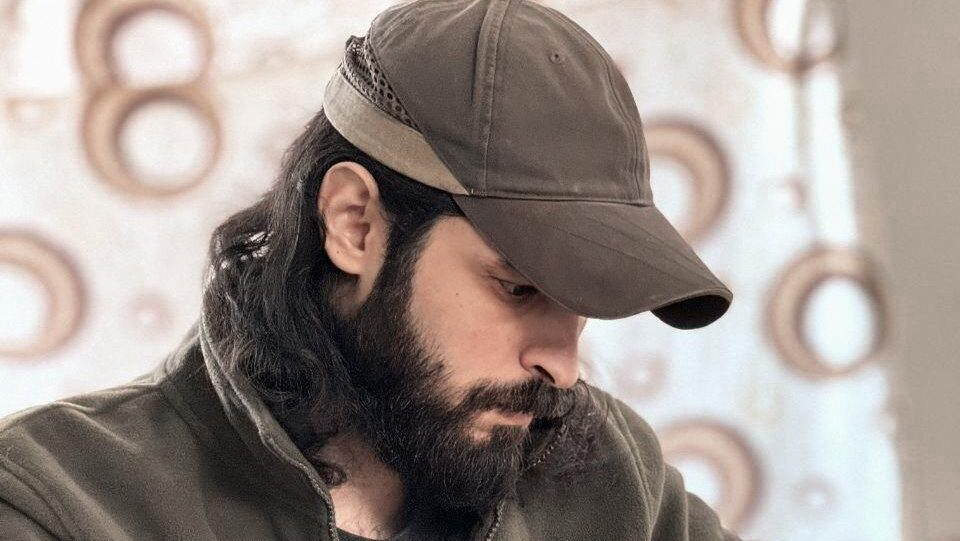
Claims by a Saudi Arabian dissident that he still faces deportation despite a court agreeing his release have prompted a social media outcry and a protest outside the detention centre when he is being held in Sofia on Tuesday.
Abdulrahman al-Khalidi has been held for three-and-a-half years in a closed-type unit in the city’s Busmantsi Detention Centre, despite a Sofia Administrative Court ruling from March 26 ordering his release, which follows a first-instance ruling from January 18, 2024.
In a statement on March 31, al-Khalidi said plans for his deportation are still going ahead and that he has been pressured into signing documents that he is not aware of and which were not translated into Arabic. He accused representatives of the State Refugee Agency of aggressive behaviour and said he was unable to contact his lawyer.
Al-Khalidi criticised what he called a “series of relentless pressure tactics”, saying: “I have been denied any opportunity for effective legal redress or equality before the judiciary to challenge deportation decisions, under the unconstitutional pretext that ‘decisions of the State Agency for National Security are not subject to judicial oversight.’
“This pattern of contempt for the judiciary and abuse of power against me poses a grave threat not only to my life but also to civil liberties, favouring coercive administrative measures whose mechanisms of impunity are shaped without the need to rely on evidence or facts,” he added.
Bulgaria’s State Agency for Refugees denied claims of acting aggressively towards al-Khalidi and told BIRN it is complying with both the court and the National Security Agency.
“There are provisions in national law on forced detention, beyond those described in the Asylum and Refugee Act, which are implemented by institutions other than the State Agency, as is the case here,” the agency stated.
The National Security Agency did not respond to BIRN’s request for details on why al-Khalidi is listed as a national security risk.
A solidarity protest was held in front of the Busmantsi centre on Tuesday.
Al-Khalidi, born in Riyadh in 1993, became active in Saudi Arabia’s protest movements in the early 2010s, when many people demanded democratic reforms and a transition from an absolute monarchy to a constitutional system.
In Saudi Arabia, he advocated for the rights of prisoners in the capital, Riyadh. He was active in an online movement established by the late journalist Jamal Khashoggi, called the Bees Army, which sought to counter pro-government propaganda. He was also an active member of the Saudi Civil and Political Rights Association.
He left Saudi Arabia in 2013 over fears for his safety and lived in exile in Qatar, Egypt and then Turkey, after a Saudi-backed coup changed the government in Egypt in 2013. Following the murder of Jamal Khashoggi in the Saudi embassy in Istanbul in 2018, he decided not to renew his Saudi ID documents. He has a wife, son and daughter living in Turkey.
In 2024, he told BIRN that his request for asylum in Bulgaria had been rejected, noting a long line of inaccuracies that had dogged his application. He said the Bulgarian authorities seemed convinced he was fleeing Saudi Arabia for economic rather than political reasons.
Al-Khalidi has been in the Sofia Detention Centre since October 2021. Protests in his support have intensified as his case gains more media exposure, boosted by his posts on social media about his situation.
In 2024, Human Rights Watch stated that, “given the rampant torture and due process violations in Saudi Arabia’s criminal justice system, Bulgaria would violate the principle of nonrefoulement by deporting a highly visible critic of the Saudi government at risk of being persecuted for his political opinions or being tortured”.
In recent years, several examples of questionable policies on deportation and denial of asylum in Bulgaria came to light. In 2024, Belarusian activists fought deportation to their home country, saying their lives were at risk.
An Iranian refugee, who took part in protests in his home country, was briefly detained but then released.
Earlier, in 2022, authorities were criticised for initiating the handover of Russian citizen Alexey Alchin, who participated in pro-Ukraine protests in Varna. Alchin was also eventually released.
In 2016, Bulgaria denied asylum to Turkish citizen Abdullah Buyuk, a supporter of the exiled cleric Fethullah Gulen.
Human rights activists claim meanwhile that Bulgaria’s immigration detention centres, which are designed only for temporary stays, administrative processing and risk management, have become de facto immigration prisons, where individuals, including asylum seekers, are detained for long periods, often without due process or legitimate justification.
